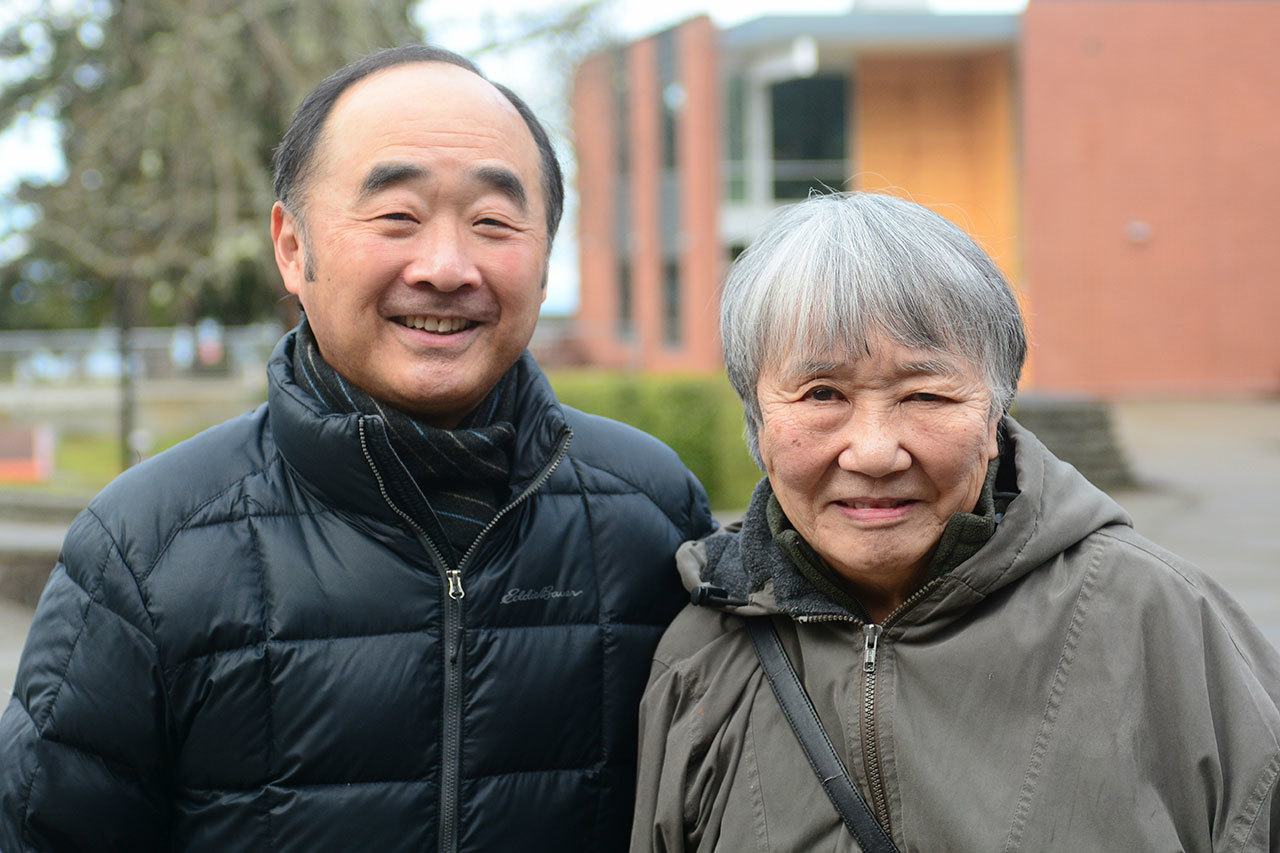PORT ANGELES — Lilly Kodama, who was one of the first Japanese Americans forced into an internment camp 75 years ago, fears the United States didn’t learn from its mistake.
Kodama of Bainbridge Island was 7 years old when soldiers ushered her onto a ferry that started her journey to an internment camp in a desert.
Her mother told her the night before she would be taking a ferry and she was so excited — because just going to Seattle was exciting — that she couldn’t sleep.
“I remember seeing real soldiers with real guns,” she said. “To me it was an exciting thing and momma did say it would be like a vacation.”
She remembers the camp as being fun and games with her friends and cousins, but looking back she doesn’t feel she was being true to herself.
“I think even then I was trying to excuse the government in a way to prove I was American,” she said. “Just because we don’t look European doesn’t mean we’re less patriotic than anybody else and I think that’s going on today.”
When she returned to Bainbridge Island with her family her friends treated it as if she had just been on vacation, she said.
She sat in the audience at Peninsula College’s Studium Generale last week as Clarence Moriwaki, president of the Bainbridge Island Japanese American Community, talked about the internment camps.
He drew parallels between the rhetoric Japanese Americans faced 75 years ago and Islamophobia today.
He showed images of advertising, vandalism and themes that followed both the bombing of Pearl Harbor and the Sept. 11 terrorist attacks.
He showed “Japanese hunting permits” that he said were distributed to U.S. Marines after they earned proficiency with firearms.
Moriwaki then showed a so-called “ISIS hunting permit” that was used to raise money for Missouri Gov. Eric Greiten’s campaign last year.
“Let’s not be coy, you can see the similarities,” he told the audience of a few dozen people.
He said precedent still stands in the United States Supreme Court for the constitutionality of internment camps.
Three Japanese Americans were convicted of violating curfew. While their cases were eventually overturned, the executive order was not challenged in the Supreme Court, Moriwaki said.
“The chilling thing there right now is the constitutional precedent of the unconstitutionality of it has never been challenged,” he said. “It still stands as a precedent.”
President Donald J. Trump announced on the 74th anniversary of the bombing of Pearl Harbor that he wanted to ban all Muslims from entering the U.S., Moriwaki said.
“Every president since Carter has apologized,” he said. “It’s no longer debatable.”
Moriwaki urged those who attended to stand up and not succumb to fear.
“When there is someone being bullied you have to stand up because that person is being violated,” he said. “These people were being violated of their fundamental liberties 75 years ago.”
Kodama said the story of Japanese American internment is important to tell so that it doesn’t happen again.
“There are people of Muslim [faith] who have been taken away and their families don’t know where they are,” she said. “It wasn’t a big mass incarceration — so blatant — but I’m sure it’s going on today.”
________
Reporter Jesse Major can be reached at 360-452-2345, ext. 56250, or at jmajor@peninsuladailynews.com.

